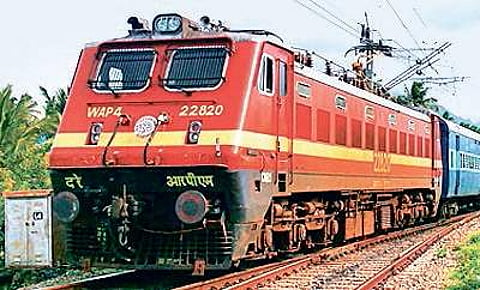Privatisation of railway may end cheap travel by trains, feel passengers
CHENNAI: The railways decision of allowing private trains in its network has evoked strong resistance not only from railway employees, but also rail users.
Rail passengers feared that the move may sound death knell for railways forcing it to give up its core objective of serving poor and middle class population. Eventually, the train services may attain ‘elite’ tag reducing itself transportation meant for those who could afford higher fares.
A few days ago, the national transporter invited a request for qualification application from interested parties for operation of the private trains across the Country. The railways has proposed to operate 151 trains in 109 routes. The private companies will be allowed to fix the fare for 35 years.
Though railways hasn’t increased the ticket fares for more than a decade, it has registered higher revenue in passenger ticketing through ‘backdoor’ tactics such as introduction of surge pricing, introduction of premier trains, suvidha trains and increasing the AC class berths and seats in existing trains.
"No private company would be interested to operate trains on uneconomic routes. So high demanding routes have been earmarked for private trains. The revenue earned from the highly demanding routes helps railways to operate passenger trains in uneconomic routes. Now additional earnings through suvidha and other premier trains will go to private players thereby forcing railways to cancel less patronised trains," said Edward Jeni, secretary, Kanniyakumari District Railway Users' Association (KKDRUA).
Referring to the recent railways board's decision to convert over 30 passenger trains of Southern railways into express trains, Jeni felt that private players will charge exorbitant fares like omni bus operators. "Besides bringing down the share of confirmed railway employees in the system, the employees may not have any job security like those works in airline industry," she said.
Operating both private and railway trains on the same routes may lead to malpractice and corruption, pointed out by many rail passengers.
The Chennai-Coimbatore Kovai Express, which remained one of fastest trains covering 495 km distance within six hours and ten minutes, until 2010 has lost its shine after introduction of Coimbatore-Chennai Duronto Express in 2011.
The Duronto express which later converted into Shatabdi Express with the additional stoppages has been given precedence over Kovai Express, resulting in increasing the travel time to more than 7 hours.
"It's an open secret that timings of Kovai Express were tweaked to increase the patronage of Shatabdi Express. The train which once reached Central station at 9:10 pm now reaches the station beyond 11:10 pm. Similar, malpractices may happen if private trains are introduced along with regular trains," said a regular commuter R Johnson.
Railway minister Piyush Goyal justified the decision saying the move would enhance the passengers' services in trains, besides helping the railways to increase its earnings. Tamil Nadu Southern Districts Train Passengers Association said that railways earnings are hard hit due to the expenses incurred on the establishment and less ticket earnings.
Soosairaj, president of TNSDTP said, "The railways top officials account for a substantial portion of expenditure. Railways should cut the unnecessary perks to officials and should nominally increase the
ticket fare in non AC and suburban sections."
However, former DRUCC member V Giri opined that private trains are a bad idea as private players are to be allowed only in five per cent of routes.
"Railway believes that it's work force is not competent enough to enhance the system with innovative ideas. Private participation in railways started with the launch of IRCTC in 1999 itself. Now the railways are going for open bidding, instead of closed one. There should be sufficient checks and balances ensuring that private players are not given any undue advantages in demanded routes," Giri said.
Giri added that it may be too early to comment on enhancing the rail tracks for withstanding the speed of 160 kmph. "The existing trains should first run at 130 kmph," he added.

